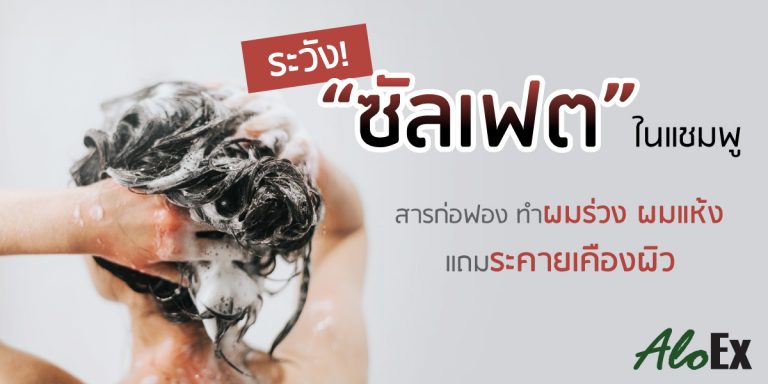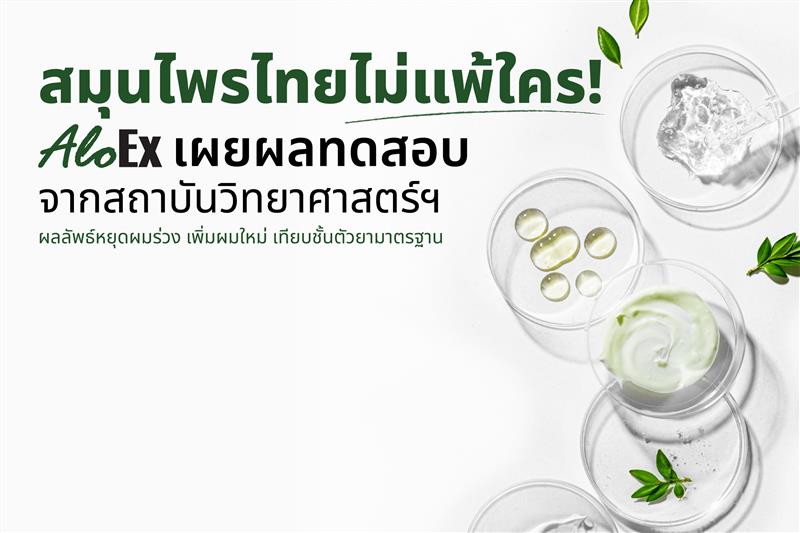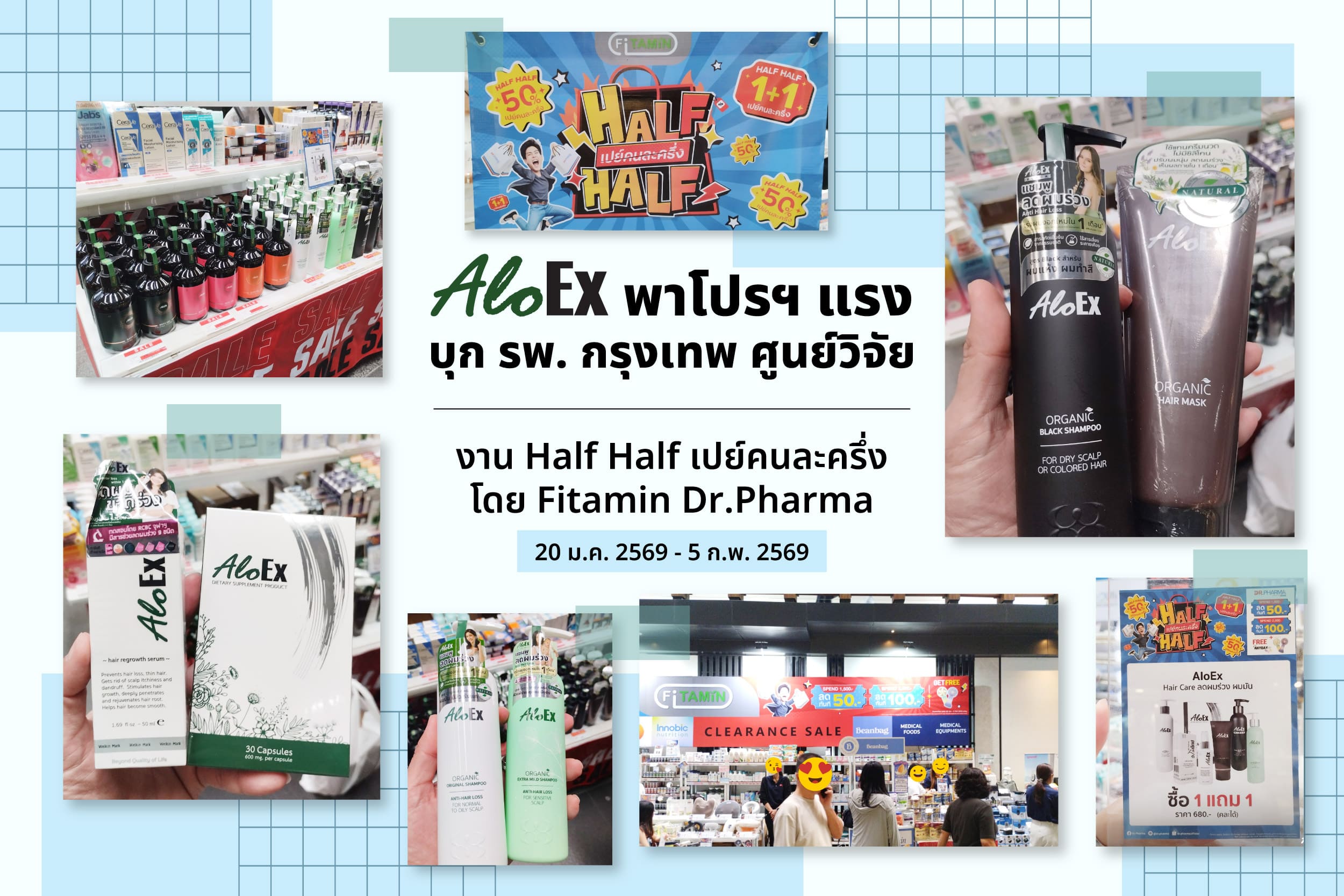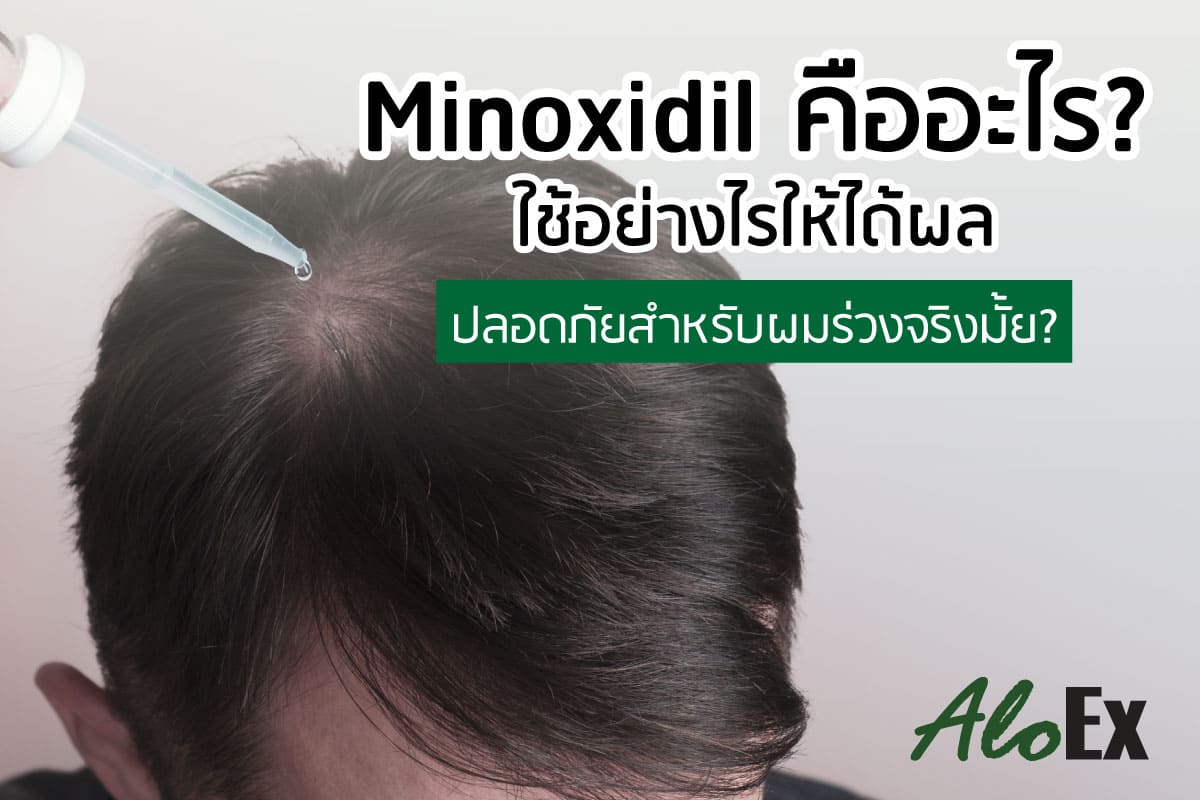If you enjoy taking showers or washing your hair with lots of soft, fluffy lather, you're probably familiar with “sulfates,” right? Many people feel that the more foam, the better—it seems like you're getting cleaner after showering or washing your hair. But… hidden beneath all that rich lather are dangers to your eyes, scalp, and hair that you might not expect.
Today, AloEx would like to introduce you to “sulfates” in shampoo. What role do sulfates play? How do they help cleanse? And what are their potential negative effects on us? Find out in this article.
What is Sulfate?
Sulfate is a chemical used as a primary ingredient in various cleaning products. Sulfates create foam to help clean residual dirt and grime.
The most commonly used sulfates as primary ingredients in cleaning products are sodium lauryl sulfate (SLS) and sodium laureth sulfate or sodium lauryl ether sulfate (SLES).
Examples of products containing sulfates
- Shampoo
- Bath soap
- Laundry detergent
- Dishwashing liquid
- Floor Cleaner
- Bathroom cleaner
- Toothpaste
- Cosmetics/Skincare
The difference between SLS and SLES sulfates
Although sulfates such as SLS and SLES are the most commonly found sulfates in cleaning products, these two types differ in their level of skin gentleness.
SLS can cause more skin irritation than SLES due to its stronger cleansing properties. SLES, on the other hand, is developed from SLS and retains its cleansing capabilities while being gentler on the skin. However, it is still possible for some individuals to experience irritation or allergic reactions to SLES.
How are sulfates beneficial for the scalp and hair?
Sulfates, such as SLS and SLES, found in regular shampoos create a lather that helps wash away dirt and residue, including excess oil, leaving your scalp and hair cleaner. This is especially beneficial for those with oily scalp and hair, who may notice that after using shampoos containing sulfates, their scalp and hair feel cleaner and stay less oily for longer.
How do sulfates negatively affect the scalp and hair?
Since sulfates are chemicals with strong cleansing properties, they also strip natural moisture from the scalp and hair. Therefore, prolonged use of shampoos containing sulfates like SLS and SLES can lead to dry scalp and hair. Experiencing dry, flaky scalp, weakened scalp, inflammation, itching, and irritation. Hair becomes dry, damaged, brittle, and prone to breakage, leading to hair loss, thinning hair, and slow hair growth.
Additionally, shampoos containing sulfates such as SLS and SLES can cause eye irritation, leading to a burning sensation, redness, or even conjunctivitis if the shampoo gets into the eyes.
Who should avoid shampoos containing SLS and SLES?
Individuals who should avoid shampoos containing sulfates such as SLS and SLES include:
- Those with sensitive skin, allergies, or skin that is easily irritated, as well as individuals with skin that is sensitive to various chemicals.
- Those who regularly dye their hair, use chemicals, or apply heat should avoid sulfates like SLS and SLES, as they can make hair dry, coarse, brittle, and more prone to breakage. Additionally, these ingredients can cause hair color to fade faster, leaving it dull and unattractive.
- Individuals experiencing hair loss, thinning hair, or hair that breaks easily may be affected by sulfates such as SLS and SLES, which can accumulate on the scalp and irritate hair follicles, weakening them. This can lead to increased hair loss and slower regrowth.
- Individuals with dry scalp and hair experience this condition because sulfates, specifically SLS and SLES, strip away natural moisture, exacerbating the severity of dry hair issues.
- Mothers who are pregnant or breastfeeding should be cautious, as SLS and SLES may linger and harm the baby's delicate skin.
Clean hair, no risk of hair loss, irritation, or allergies with sulfate-free shampoo.
Although shampoos containing sulfates are now formulated to be gentler on the skin, sulfates can still potentially cause irritation or residue buildup. Therefore, avoiding shampoos with sulfates such as SLS and SLES is the best option. Even though it produces little foam, it is safe for your skin, scalp, and hair. It also helps prevent allergic reactions, skin irritation, dryness, scalp flaking, and hair loss or thinning that may occur in the future.
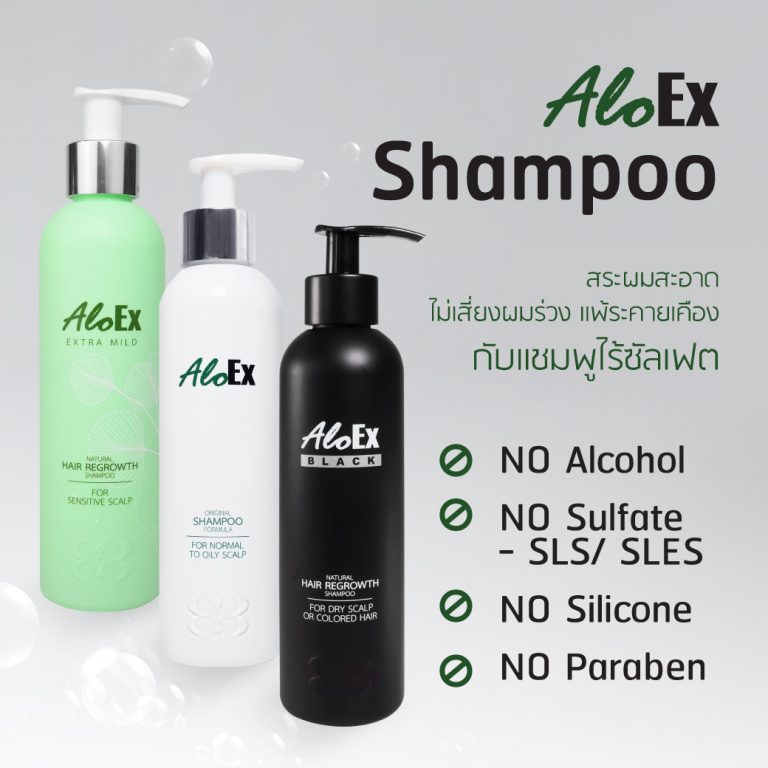
AloEx products are suitable for those with sensitive skin, easily irritated skin, skin that is sensitive to chemicals, or mothers experiencing hair loss during pregnancy and postpartum. You can use them with confidence because they are sulfate-free. (Sulfate-free) Moreover, there are no chemical residues that may irritate the skin.
- No alcohol.
- NO Sulfate – SLS/ SLES
- No Silicone
- No Parabens
AloEx Anti-Hair Loss Shampoo: Which Formula is Right for Your Scalp and Hair?
Choose the AloEx anti-hair loss shampoo formula that best suits your scalp and hair type. Check it out!

